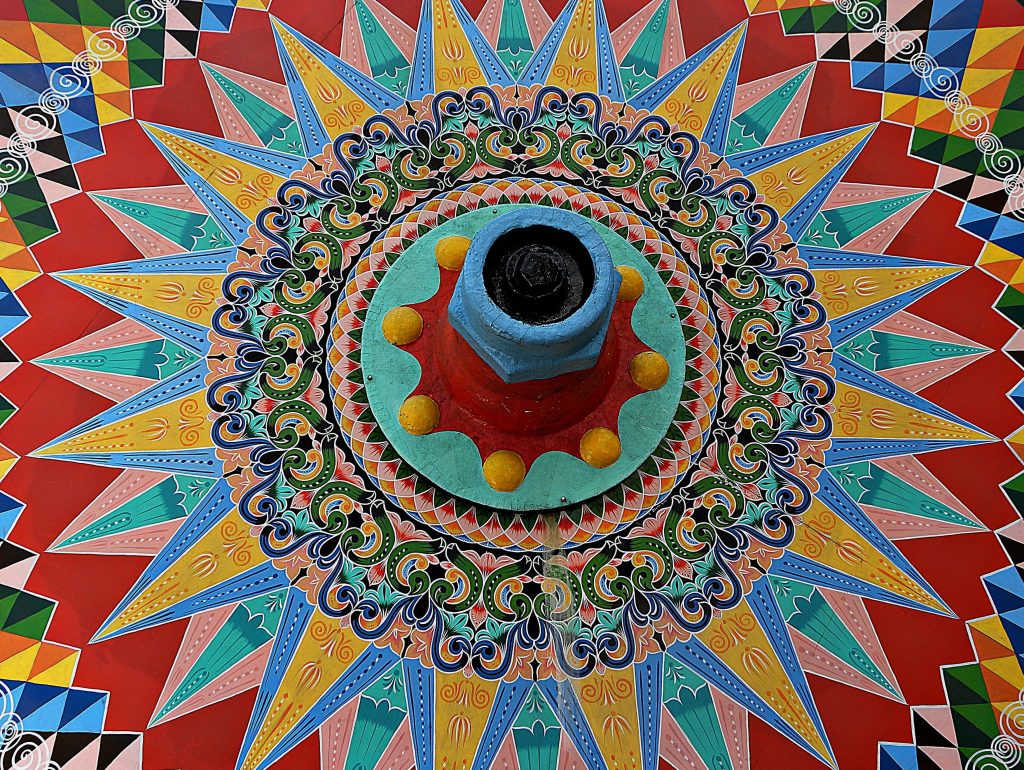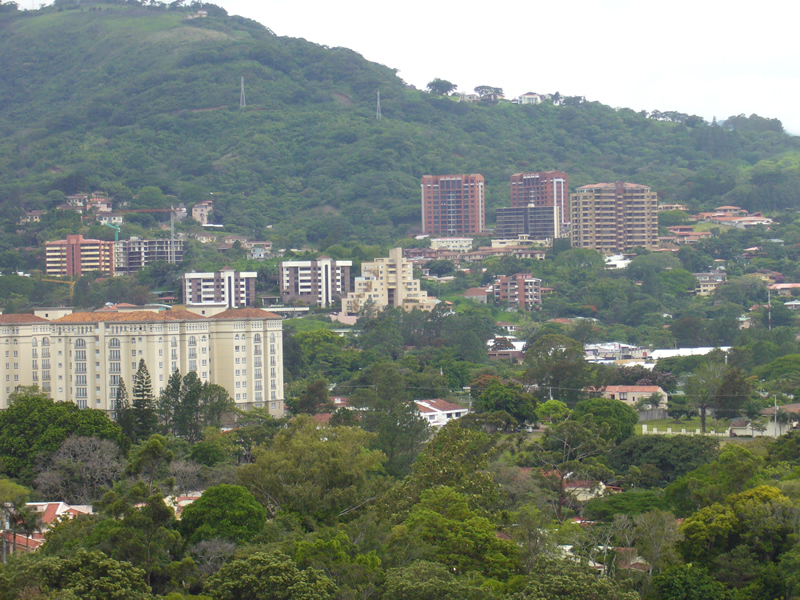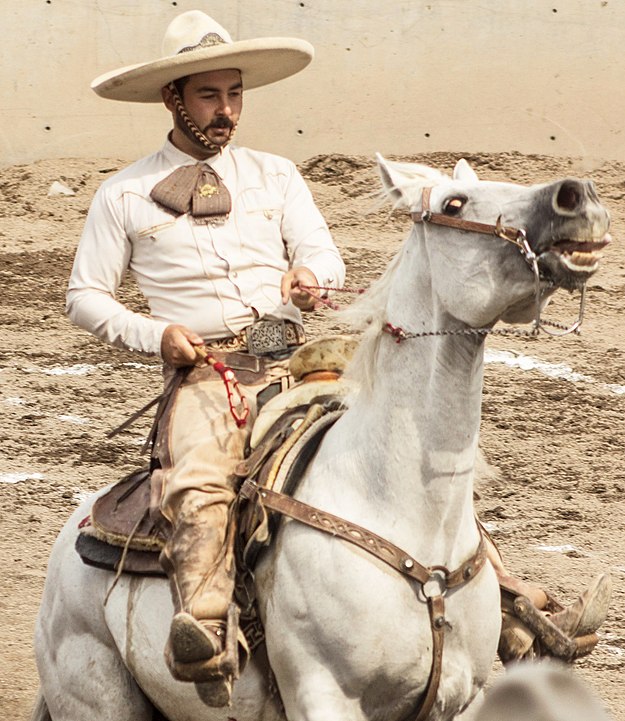
“Wandering, I love the thrill of unknown paths. I am a nomad. I am a wanderer. I am a drifter. Why do I keep on drifting? Yes, I wish I knew why? I am not aware of the reason myself. Why do I keep on drifting?”
Avijeet Das

Modern Day Nomad and Expat Profile: Vicki Skinner

How I Got to Know Vicki Skinner, a Modern Day Nomad and Expat in Costa Rica
In 2007, I went to Costa Rica to learn about expat life for my workshops about living abroad. After a few days elsewhere in the City, I spent almost six weeks in Vicki’s guesthouse. Her experiences and connections have served as a valuable resource throughout my Fifty Plus Nomad journey.
The guesthouse was in Escazu, a leafy suburb around thirty minutes by car from downtown San Jose. I was astonished by Escazu’s impressive variety of US brand stores (including Hooters and Tony Roma’s). I was also happy to be in the largest expat community in Costa Rica.
While Vicki’s guesthouse was comfortable, well located, and reasonably priced, she was the main attraction. (I gathered that was true for most of her guests). In my first days in Costa Rica, I joined a Listserve of expats. (This was before the days of Facebook and other social media). As I recall, Vicki had several posts on the Listserve demonstrating that she had multiple connections to the expat community. I also read that she had a guesthouse. I thought staying with her would connect me to expats and help me learn about the issues in their community.
During my stay, I met at least fifty expats from many backgrounds and points of view. Sometimes, I would hear about an expat who would mysteriously show up to see Vicki the next day. Boy, did that turn out to be the right move.
I grew pretty fond of Vicki. She has a very natural charm and openness. She frequently invites her guest to accompany her to many different functions. Vicki calls herself a Sarong Goddess because she almost always wears a sarong. She is also easy to talk to about your hopes, dreams, issues, and life story. *
One of her favorite memories was how she spoke Vicklish with local Costa Ricans. Vicklish is Vicki’s unique mixture of Spanish, English, and hand gestures, and locals find it surprisingly easy to talk to her in Vicklish.
She encourages them to speak to her in English using Vicklish and being very patient and enthusiastic. She maintains that many locals use English to be polite, and many others need English for their jobs. They welcome the chance to talk because she eases their fear of making mistakes and mispronouncing words.
Vicki and I have remained in contact since my stay in her guesthouse. I visited her in 2015. She is a fountain of information. When I was at her guesthouse, she constantly helped guests find everything from dependable taxi drivers to medical specialists. Many guests stayed with her while they recovered from surgical procedures.



Vicki’s Childhood
Vicki grew up in Orange, about forty miles south of Los Angeles, California. (I grew up in Corona del Mar, about a fifteen-minute drive from Orange). She was the president of the AFS (a youth inter-cultural exchange program) and worked on promoting and marketing school activities.
Vicki never actually went on an AFS exchange program to another country in High School because, as she says, she thought: ¨Why would I want to leave Orange to go anywhere else¨. She loved the beach and had friends from many social groups and backgrounds. I imagine that Vicki was probably a hippie-like iconoclast in High School, much like Vicki is today. However, she was so disarmingly friendly and easy to talk to that everyone liked her, even if they did not always approve of her lifestyle in otherwise conservative (especially at that time) Southern Orange County. ***


Vicki’s Young Adulthood
Vicki’s skill and fondness for marketing and promotion led her to a degree in broadcast journalism and later a prestigious job at one of the largest advertising agencies in San Francisco. (Interestingly, she wanted to go to San Francisco to escape the elitism or Orange County).
While working there, she frequently traveled to Italy and wrote a travel newsletter for friends and family before the internet. Once, she could not afford to go to Italy and instead went on a low-cost cruise. While on the cruise, she met the hotel director encouraged her to become a travel agent.
She met many gays in San Francisco and became one of the first promoters of gay travel to Puerto Vallarta, Mexico. Over time, she developed a business matching gay clients with house rentals and hotels in Puerto Vallarta. Eventually, she worked with over 100 homeowners and hotels in Puerto Vallarta.
To help guests, she developed several hundred-page guidebooks to gay-friendly services in Puerto Vallarta. The guide became so talked about that guidebooks like Frommers even asked her to help with research and writing.
After seven years in San Francisco, she moved to Sarasota, Florida. She says Sarasota is her ¨heart home.¨ If Vicki ever leaves Costa Rica, she would like most to return to Sarasota.
However, she had to evacuate her home several times to avoid hurricanes. Evacuating eventually wore her out, and in 2004 she decided to look for somewhere else to live.

Why Escazu, Costa Rica?
Ever since being the AFS president, Vicki had dreamed of living overseas. She thought about where she wanted to live abroad and narrowed her selection to three places: San Pancho (a beach town north of Puerto Vallarta), Caye Caulker, Belize, and Costa Rica.
Vicki decided that San Pancho had too many roosters crowing at odd hours in the night and early morning. She found out the Caye Caulker had too many hurricanes. (She did not want to live in Puerto Vallarta because it has too much party atmosphere).
Vicky always admired Costa Rica because the country has no standing army and a reputation for environmentalism and social welfare. (She maintains, and I am inclined to agree with her, that Costa Rica is not as environmentally friendly as it purports).
However, at first, she thought Costa Rica was an island. (She tells me that many people make this mistake. Since I have loved geography since childhood, I thought everyone knew Costa Rica’s location).
Since Vicki was always in love with the beach, she initially thought about living on the coast in Costa Rica. Instead, however, Vicki settled in the mountainous Central Valley, about an hour or two away from the beach (San Jose is in the Central Valley) because:
- Unlike the beach, there are no hurricanes
- It is very convenient. You can find almost anything you need there quickly. There are extensive hospitals, doctors, and medical services.
- The expat community in the Central Valley does an excellent job helping each other find resources. (Beach communities throughout Latin America tend to attract expats who like to party. Like Costa Rica’s Central Valley, expatriates in inland communities plan many more social, volunteer, and cultural activities together than in most beach communities).
- The weather is pleasant in Escazu. While in contrast, the beach in Costa Rica is scorching and humid. (Escazu has one of the most consistently pleasant temperatures of any place. A lot like her hometown of Tustin).
- She could quickly get around the area without a car. (She can’t imagine driving in Costa Rica. Neither can I. The roads are in poor condition, very curvy, and the drivers are crazy). ****
Something virtually impossible then happened. She returned to Florida and shipped much of her furniture to her new Costa Rican home. To her shock, the container arrived at her house as scheduled in one week. Vicki felt this was an auspicious beginning for her new life in Costa Rica.
Another sign of predestination occurred a few months later when she decided to open a Bed and Breakfast. Vicki didn’t want to live in Escazu initially because it was too expensive and full of gringos. However, she went out with a realtor and found the perfect place for a bed and breakfast in Escazu. The rent was usually around $2500 a month, but she lucked out and negotiated a $1200 monthly rent.
When I met her in 2007, she had run her guest house for three years, and she continued to run it for another four years afterward.



Life After the Guesthouse
When Vicki had to leave the guesthouse because of a significant rent increase in 2011, she decided to sell most of her belongings and live wherever she could find a place. She had over 100 pairs of shoes and minimal belongings in San Francisco. Being without so much stuff was a significant change for her.
Today, eight years later, she has a couple of suitcases with her belongings in storage in a client’s home in Playa Flamingo, Costa Rica. (Vicki helps this client by being her Gal Friday—in other words, doing errands). She also has a couple of other bags when she moves around.
At first, Vicki stayed in a beautiful little casita in a hotel around Escazu’s hills. She recalls this place affectionately because fog would frequently roll through the house.
Vicki lived in other people’s homes and cared for their pets in exchange for a place to stay and a small stipend. After that, she began a pet-sitting business. She has run several Facebook pages dedicated to helping expats to find services. She has tried to make money from these pages but has never been able to earn enough to make much difference.



How is Vicki Able to Stay in Costa Rica?
Like many Costa Rican expats, Vicki is a perpetual tourist. She does not make enough money consistently to qualify for permanent residency and therefore has to stay there legally as a tourist.
Vicki cannot make money from a job in Costa Rica. She also has to leave the country every three months to renew her permission to stay as a tourist. Expats call these trips visa runs. Vicki, luckily, has never had a problem getting permission to reenter the country.*****
For the first three years, she went to Bocas del Toro, Panama, on a plane for her visa runs. She tried to take a bus there but found it time-consuming and unreliable because the roads flooded frequently. Over time, she no longer had the money to keep flying to Panama.
Vicki heard it was easiest to do visa runs by bus to Nicaragua. She didn’t want to go to Nicaragua because she worried it was unsafe. She also heard stories that the border crossing was very slow and complicated. ******



Nowadays, Vicki Divides Her Time Between Costa Rica and Nicaragua (and Is Hoping to Also Stay In Mexico City)
Eventually, she relented and went to Nicaragua. To her surprise, Nicaragua felt relatively safe, and she liked the people and culture there. It is also much cheaper than Costa Rica, and most food and services cost about half of the same things in Costa Rica. (I have always felt that Costa Rica was expensive).
Surprisingly, her first border crossing was easy. Since this was not the case for many other expats doing visa runs, she began a Facebook page to help people find the best times to cross the border.
Even though she has spent more time in Costa Rica for several years now, she lives a couple of months a year in Nicaragua. In the past, she frequently stayed at a hostel in San Juan del Sur, a famous surfing town and expat hangout.
She spends time in Rivas, a well-connected transportation hub, about halfway between the border and Managua. Vicki likes Rivas because almost everyone there is from Nicaragua, and the locals are amicable. She stays in a hostel for $6 a night, including a private bathroom and a bedroom. She can also stay there comfortably for a few hundred dollars a month.

Where Is Vicki Now?
The border between Nicaragua and Costa Rica is closed because of Coronavirus, and Vicki stays in Rivas. She believes she may not return to Costa Rica for quite a while. She will likely be able to return to Costa Rica at the earliest next fall.
Vicki hopes to return to Costa Rica as soon as possible because she has some potential pet-sitting gigs. In addition, she is concerned about instability in Nicaragua before the upcoming 2021 presidential election. (It appears that Daniel Ortega will likely face a formidable challenge in 2021 after running the country since 2006).
However, while she feels a bit stranded in Rivas, she is doing her best to make her hostel room in Rivas comfortable. She has decorated her room to make it cozier for an extended stay. She has started feeding and taking care of a couple of local dogs. (Vicki is currently trying to fundraise to pay for the dogs’ upkeep, and she is also trying to solicit funds to help her care for these animals). Many expats in Latin America started assisting animals and running animal shelters.

Vicki and Mexico City
In 2017, Vicki met an artist who offered to give her a free place in Mexico City for marketing help. Even though she feared that Mexico City was too big and dirty, she agreed to the artist’s proposal. Vicki fell in love with Mexico City and maintained that it is her favorite big city. She loved the City’s low-cost Uber pooled cabs and enjoyed finding many low-cost and free cultural events.
Vicki planned to go there for three months this April before the Coronavirus pandemic hit. She has already developed a Facebook page on Living in Mexico City. She plans to write a booklet about visiting Mexico City in the cheap future.

What are Vicki’s Future Plans?
Despite some financial issues over the years, Vicki strongly advocates following your heart and traveling and moving to another country. She is glad she followed her muse to see the world and live outside the US.
Vicki particularly wants to encourage single women over 50, regardless of their income, to follow their hearts to live and travel abroad as she has. She says that women living exclusively on social security can live much more comfortable and fulfilling lives outside of the US than staying at home.
Toward this goal, Vicki dreams of developing a hostel, possibly in Mexico City, geared primarily (but not exclusively) toward single women over the age of 50. She loves the camaraderie of hostels and the opportunity to meet attractive tourists from all over the world. She is eager to encourage single female Fifty Plus Nomads to discover the benefits of staying in hostels. (She is concerned about how the Coronavirus may change hosteling).
Unlike many other hostels, Vicki envisions offering many classes and activities to encourage social interaction for her guests. She also wants to help guests looking to live or work in the area connect with valuable resources.
In addition, Vicki wants to encourage social interaction between guests and locals through a language exchange club. Such classes offer an opportunity for tourists to practice Spanish with locals and for locals to practice English with guests.
She loves to connect people and resources and is a natural-born hostess. I wish her great luck in this endeavor.


NOTES
*One of my favorite memories was voting in the Democratic Primary with Vicki in 2008. The precinct was in a hotel room. As Vicki said, she always dreamed of voting in one of her favorite places, bed, as she did with so many other things.
** I try to remind myself of Vicklish often. Many times, I speak better Spanish than many locals who speak English. When I talk to locals, and they reply in broken English, my instinctive reactions are:
1) They must think my Spanish is poor or
2) I could have this conversation so much more comfortably in Spanish.
I must remind myself that Vicki is often right; locals speak English to be polite or practice English. It can be a service to them to encourage their efforts.
*** In contrast, I could not wait to leave my hometown. I went on three exchange programs to the Philippines, Japan, and Mexico in High School. One of my primary goals in selecting a college was to get as far away from Orange County as possible. I was bullied and ostracized and believed Orange County was too elitist.
**** As a fun aside, I participated in a two-week humanitarian program administered by one of Vicki’s friends, Gayle Nystrom. Gayle came to Costa Rica as a Peace Corps volunteer in the 1970s and has lived there ever since. When I asked Gayle about driving in Costa Rica, she told me it was hard to drive in the US. Shocked, I asked her why. Her response: Often, US roads are so empty and well-organized that she feared falling asleep at the wheel. You can’t fall asleep in Costa Rica because you always have to look out for other drivers!)
***** Many expats in third-world countries leave the country to renew their tourist visas to remain in the country. Most countries require perpetual tourists to go every three months – Mexico is every six months.
****** While staying in her guesthouse, I visited Nicaragua for two weeks. Upon my return, I told Vicki how much I liked Nicaragua. She told me she did not want to go there because it was too dangerous.

Fifty Plus Nomad offers personalized workshops and courses in Spanish, English, Living and Traveling in Mexico, and Long-Term Travel Book a Two-hour Free Sample Introductory Session










